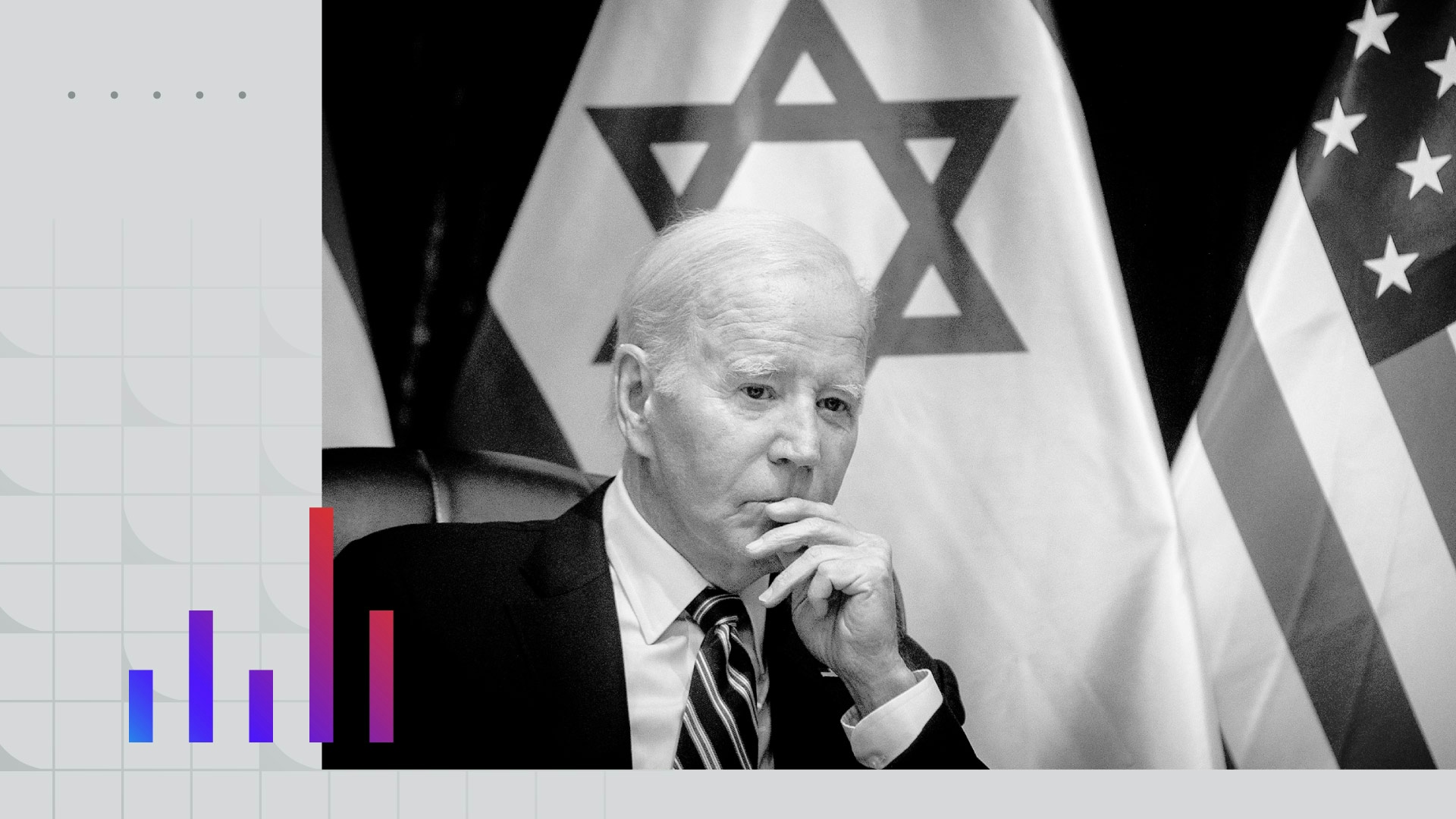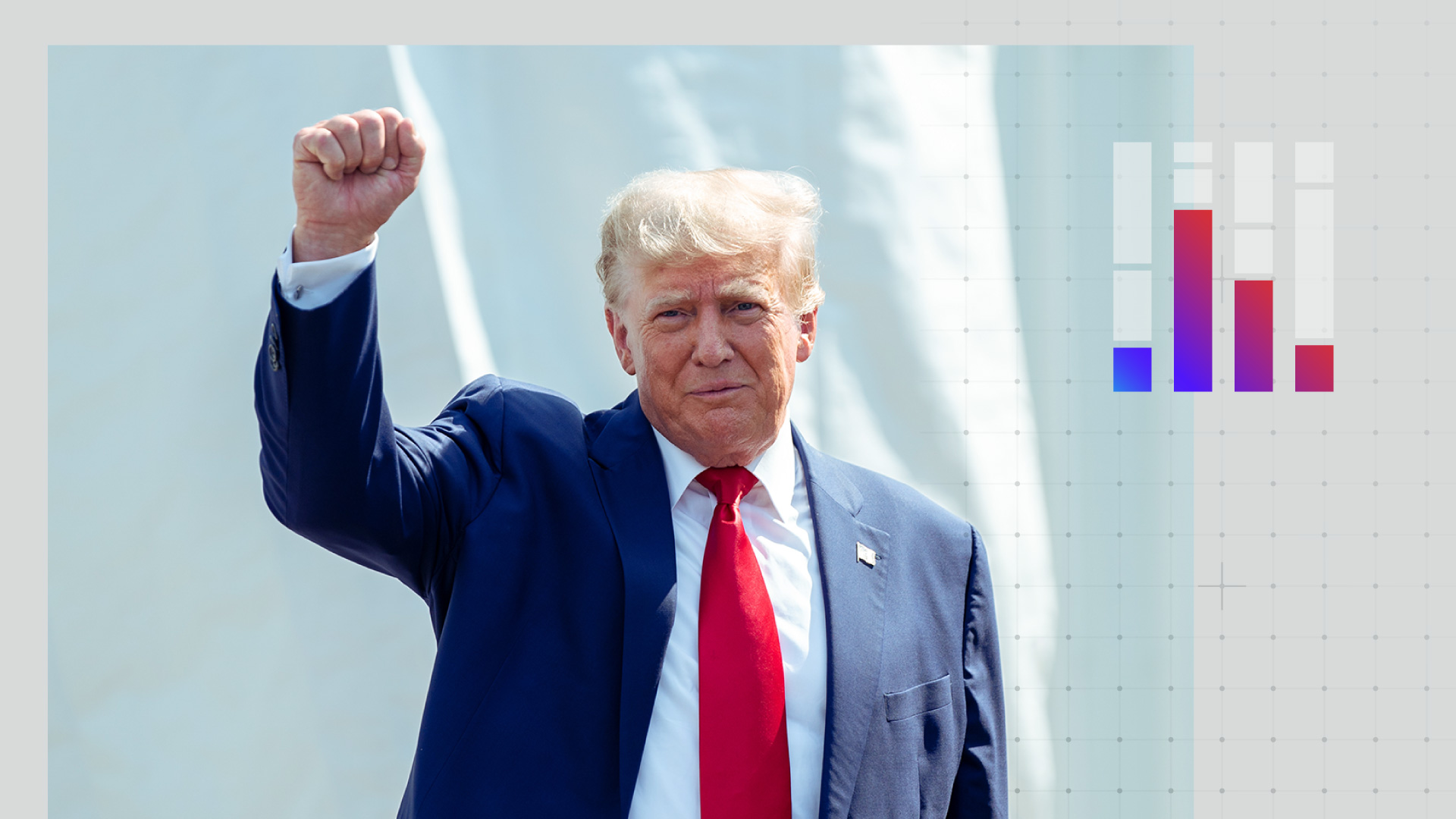U.S. Voter Support for Israeli Military Aid Reaches Wartime Low

Data Downloads
Pro+ subscribers are able to download the datasets that underpin Morning Consult Pro's reports and analysis. Contact us to get access.
Sign up to get the latest data and analysis on how business, politics and economics intersect around the world.
Fewer voters than ever before support the provision of military assistance to Israel amid its war effort in Gaza, according to Morning Consult’s ongoing tracking of U.S. public sentiment following Hamas’ Oct. 7 attack.
Support for Israeli military aid hits a new low

According to our latest monthly survey, 41% of voters said the United States should provide military aid to Israeli Prime Minister Benjamin Netanyahu’s armed forces, down from 53% at the start of the conflict. Support fell the most among Democrats (from 52% to 34%), but it has also slipped among independents (46% to 35%) and Republicans (from 59% to 53%).
Roughly 3 in 5 voters said the United States should provide humanitarian aid to the Palestinians, in line with our previous findings.
Along with the decline in support for military assistance, our latest survey also clocked the electorate’s lowest level of predominant sympathy for the Israeli people since the conflict began.
Americans have lost sympathy for Israel amid Gaza war

Just 28% of voters are most sympathetic toward the Israelis, down from 41% in October. Over the same time period, the share of voters who are most sympathetic toward both sides equally has increased (from 26% to 36%), while sympathies toward the Palestinians ticked up to a smaller extent.
The decline in primary sympathy toward Israel was driven by independent voters and Democrats, reflecting trends on the question of military assistance, though it’s also fallen among Republicans (from 55% to 47%). Notably, roughly 1 in 4 Democrats are most sympathetic toward the Palestinians, a divide within President Joe Biden’s party that has been evident in the news cycle, from policy debates in Washington to protests on college campuses nationwide.
The latest survey was conducted during Israel’s controversial offensive in Gaza’s southern city of Rafah, and as the Biden administration continues to try to rally support for a cease-fire. The American-backed plan to halt the fighting has proven divisive within Netanyahu’s government, as most Americans continue to express their general support for a cessation of hostilities.
3 in 5 voters support a cease-fire in Gaza

Roughly 3 in 5 voters support a cease-fire in the Israel-Hamas war, in line with the previous few months, including 39% who do so strongly. At 61%, independent voters are more likely than ever to say they want the fighting to end, alongside 71% of Democrats and a 45% plurality of Republicans.
The bottom line
The Israeli-Palestinian conflict has continued to dominate the news during the past two months, with more voters having heard about it than 18 other issues tracked, including immigration and the economy. The kind of information voters are hearing about the Israel-Hamas conflict is also consistently the most negative.
This is likely fueling the electorate’s thinning sympathy for Israel’s war effort as reporting about its tactics permeates voters’ consciousness and the world’s visceral reaction to Hamas’ Oct. 7 attack fades.
For Israel, this raises the stakes for Netanyahu ahead of his recently scheduled July 24 address to a joint meeting of Congress — and a weary American people — next month. For Biden, this adds political urgency on top of the moral weight he’s expressed to get a cease-fire in place as his own party’s support for Israel continues to tumble.
Eli Yokley is Morning Consult’s U.S. politics analyst. Eli joined Morning Consult in 2016 from Roll Call, where he reported on House and Senate campaigns after five years of covering state-level politics in the Show Me State while studying at the University of Missouri in Columbia, including contributions to The New York Times, Politico and The Daily Beast. Follow him on X/Twitter and on LinkedIn @eyokley. Interested in connecting with Eli to discuss his analysis or for a media engagement or speaking opportunity? Email [email protected].


